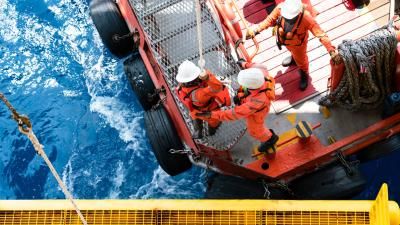The International Fund for Fishing Safety goes global – 65,000 fishers supported
The International Fund for Fishing Safety, has committed funding totaling £220,000 to support six fishing safety projects.
This page is approximately a 3 minute read
This page was published on

The findings of this report reveal a stark reality: ocean workers are on the front lines of climate change. Compared to the global workforce, they are not only more concerned about experiencing harm from climate change, but also face a heightened risk from severe weather events. These fears are not hypothetical – they are rooted in lived experience, with many ocean workers having already suffered harm from extreme weather and dangerous working conditions at sea.
But climate change is only part of the threat. Ocean workers also face elevated levels of workplace harm more broadly, due to the demanding, hazardous, and often isolated nature of their jobs. Despite this, they are less likely than other workers to report harm when it occurs – often due to fear of retaliation, lack of trust in reporting systems, or limited access to support. This silence makes already dangerous work even riskier.
This short ‘Focus On’ report presents the findings of a new analysis of World Risk Poll data collected in 2023, focusing on the risk perceptions and experiences of ocean workers – those who work on or near water.
Download Focus On: Risk perceptions and experiences of ocean workers (PDF, 3.09MB)If you wish to use and reference the Focus On: Risk Perceptions and Experiences of Ocean Workers in your own work, please include the following DOI: https://doi.org/10.60743/xjn7-9x64
Example Citation in IEEE Style:
Lloyd's Register Foundation, “World Risk Poll 2024 Focus On: Risk Perceptions and Experiences of Ocean Workers,” Lloyd's Register Foundation, 2025. doi: 10.60743/XJN7-9X64.
